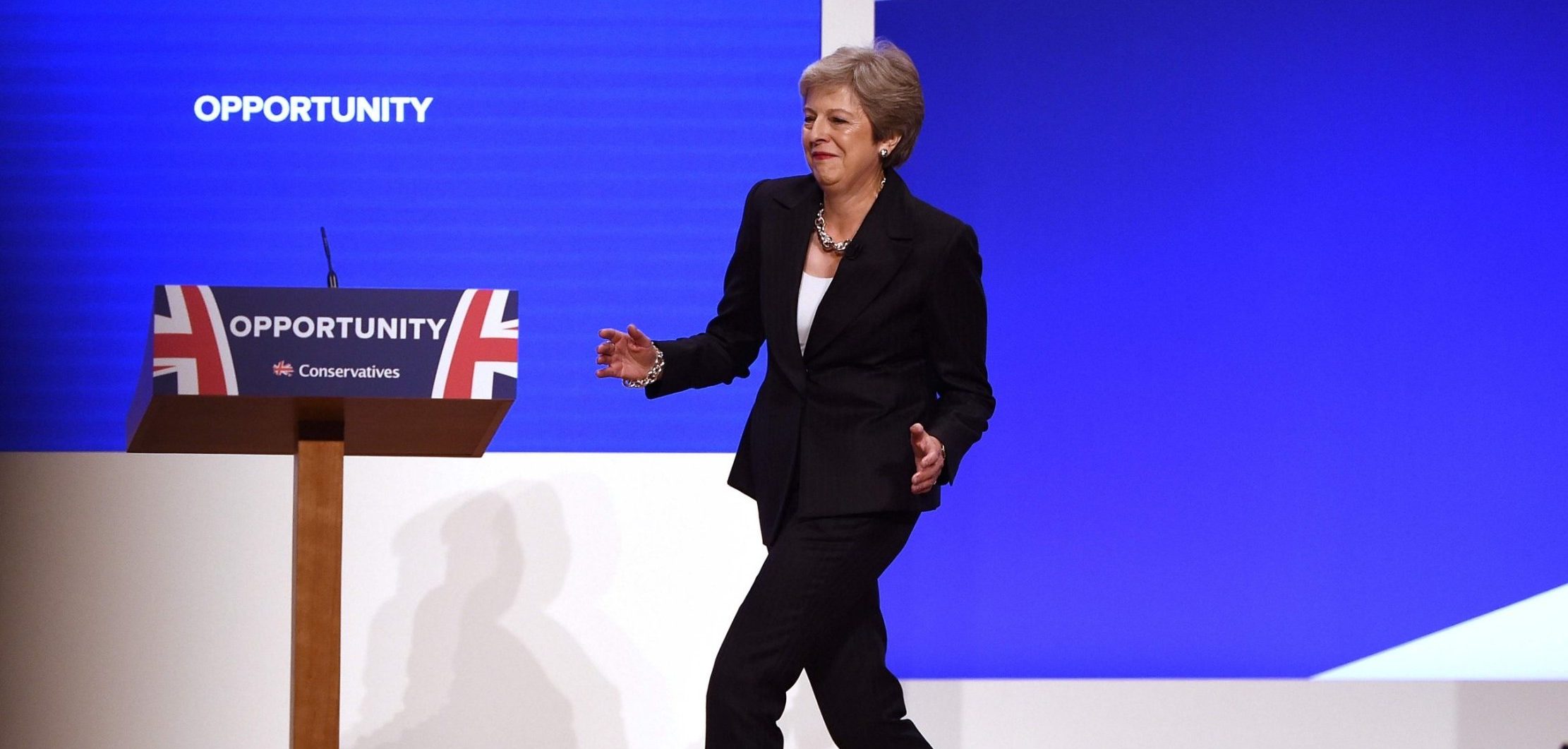Conservative conference – roundup special
By Kasia Banas, Consultant
It’s been another memorable Conservative Party Conference with the PM’s closing speech and erratic dancing grabbing the covers of most major newspapers this week. Mrs May impressed not only with her moves but also by showing a rare glimpse of humour and self-deprecation.
In what some are calling one of her best speeches as PM, May focused on calling for party unity and launched a measured and stinging attack on Jeremy Corbyn’s Labour party. The rest of her speech saw her declare an end to austerity, announce a new cancer strategy, freeze fuel duty, and reject the option of a second Brexit referendum.
Finally, she told the audience “solving the housing crisis is the biggest domestic policy challenge of our generation” before dropping the biggest announcement of the week: lifting the councils’ cap on borrowing money, and potentially unlocking an extra £1bn to build as many as 27,500 new social homes per year.
Councils have been calling for this for years. Removing the borrowing cap has been at the top of the Local Government’s Association’s wish list to Government for as long as it has existed, so the significance of its removal cannot be understated.
Predictably, the move has been warmly welcomed by voices from the sector. Shelter called it “a major reform that shows real intent to back the social house-building we desperately need”. The Local Government Association’s Gary Porter said: “Today’s speech by the Prime Minister shows that the Government has heard our argument that councils must be part of the solution to our chronic housing shortage”.
Labour was quick to point out that following eight years of funding cuts, the councils may lack the capacity to actually deliver the expected homes.
Housing has also been confirmed as a top priority by Secretary James Brokenshire who pledged to speed up the planning system and enable “generation rent to become generation own” and reach the target of building 300,000 new homes a year.
He made a series of announcements including appointment of a new homes ombudsman advocating for homebuyers and holding developers accountable for the quality of the new builds, and a ban on use of combustible materials on external walls of high-rise residential buildings.
Mr Brokenshire called for smarter use of the space and land available such as increasing housing density by extending upwards on existing properties. Other planning changes include promoting councils keen to make new garden communities a central part of their plans for housing and economic growth. Local authorities will also receive additional freedom to make the most of existing brownfield land and dispose of surplus land that could instead accommodate new homes.
The government is also providing a £165 million funding boost to create a Commonwealth Games Village in Perry Barr, Birmingham. Following the games, the site will be converted into up to 5,100 homes. The project will support wider regeneration of the Perry Barr area through major infrastructure projects such as road and public transport improvements including upgrading the railway station, to support both new and existing communities.
Earlier in the week, it was also announced that a new levy is being imposed on foreign buyers of properties in the UK and funds raised from the levy will aid the schemes in the government’s rough sleeping strategy.
In an interview with The Sunday Telegraph ahead of the conference, James Brokenshire admitted that the government’s flagship scheme is being misused to finance acquisition of leasehold properties, which can see householders saddled with large annual “ground rent” payments. He said that the government was “reflecting carefully” on the scheme and next steps will be announced soon.
The conference provided a great opportunity for Boris Johnson to promote his Brexit manifesto in front of hundreds of hopeful activists who queued for hours to see him on stage. Speaking at a packed fringe event and in a rare departure from talking about Brexit, Johnson shared his views on housing, which he identified as a “massive opportunity” for Tories. Convinced that the pride of home ownership is “what people want”, he proposed several measures for giving millions more young people the chance to become owner-occupiers. These include supporting small private builders; taking on the big eight home builders, some of whom are abusing their dominant position; cracking down on landbankers; incentivising councils give planning permissions on brownfield sites; giving the councils the ability to retain stamp duty, council tax, business rates, and annual tax on enveloped dwellings to encourage growth.
While it seems that his leadership bid was eventually overshadowed by the ‘Maybot’ (and other announcements), his efforts should not be underestimated as it seems that he’s slowly realising that he won’t be able to challenge May on Brexit alone.
You can read our Labour conference special here and Lib Dem analysis here.

Strategic land and site promotion
We work with strategic land developers and promoters, landowners and planning consultants to promote sites …

Energy and infrastructure
From new nuclear and unconventional gas to renewables, waste and airports, our team has worked …


